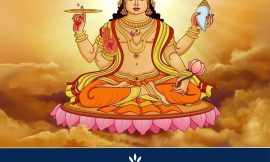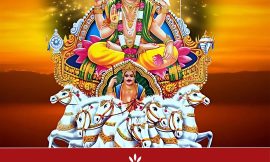Hari Vasara is the first one-fourth duration of Dwadashi Tithi and holds spiritual significance in Hindu fasting traditions
The Ekadashi fast is one important Hindu custom that followers of Lord Vishnu practice. The procedure of breaking the fast, known as Parana, must to be done correctly and at the appropriate time. Following the scriptural instructions for Ekadashi Parana ensures a thorough and productive fast.If the suggested process is not followed, the fast’s spiritual benefits might be diminished.
What is Parana?

Parana means breaking the fast. Ekadashi Parana is performed after sunrise on the next day of Ekadashi, which is Dwadashi. It is essential to perform Parana within the Dwadashi Tithi. If Dwadashi ends before sunrise, Parana should be done after sunrise but before the Tithi concludes. Skipping Parana on Dwadashi is considered an offence as per Hindu traditions. Not completing the Parana at the right time is akin to not having fasted at all. Hence, the significance of this ritual cannot be overstated.
The Right Time for Parana
Parana should never be done during Hari Vasara. Hari Vasara refers to the first one-fourth duration of Dwadashi Tithi. Devotees must wait until Hari Vasara is over before breaking their fast. The most preferred time for Parana is Pratahkal, the morning period after sunrise. Devotees should avoid breaking their fast during Madhyahna (midday). If it is not possible to break the fast in Pratahkal, one should wait and do it after Madhyahna. It is crucial to adhere to these timings to ensure the benefits of fasting are retained.
Breaking the fast at an inappropriate time can lead to a loss of spiritual benefits. Hindu scriptures provide precise calculations for determining the correct Parana time. Consulting a Panchang (Hindu calendar) is advisable to ensure accuracy.

Ekadashi Fasting on Consecutive Days
In some cases, Ekadashi fasting is observed on two consecutive days. In such situations, it is advised that Smarthas, who follow general Hindu traditions with family obligations, should observe fasting on the first day only. This is because the first day of fasting is considered suitable for householders who have familial duties and responsibilities.
The second day of fasting is recommended for certain groups of people. These include Sanyasis (renunciates), widows, and those seeking Moksha (liberation). The purpose of observing fasting on the second day is to deepen one’s spiritual commitment and detachment from material life. This alternate Ekadashi fasting day often coincides with Vaishnava Ekadashi, which is followed strictly by Vaishnavas, the devotees of Lord Vishnu.
Fasting on both days is advised for ardent devotees who want to show their love and devotion for Lord Vishnu. Ekadashi fasting is seen by these followers as a spiritual practice that deepens their relationship with God. It is thought that their steadfast dedication will eventually lead to their release, blessings, and tranquilly.
Relevance to Ekadashi
In Hinduism, Ekadashi is one of the holiest days for fasting. It is said that keeping this fast with utmost dedication helps atone for sins and promote spiritual development. It is stated that Lord Vishnu personally stressed to his followers the significance of fasting on Ekadashi. Ekadashi fasting adherents enjoy affluence, excellent health, and heavenly benefits. Fasting has importance for both physical and mental health in addition to its religious benefits.
Rules to Follow for Parana
There are certain rules associated with Parana that every devotee should follow. The first and most important rule is to avoid consuming grains and cereals immediately after breaking the fast. Fruits, milk, and light foods should be consumed first to allow the body to gradually adjust to food intake after a period of fasting. Devotees should also perform prayers before breaking the fast, expressing gratitude to Lord Vishnu.
The Parana procedure should not be hurried through. It is a holy time that signifies the end of the fast and is to be observed with utmost reverence and trust. It is thought that the entire fasting effort is pointless if Parana is not done appropriately. Devotees should so take the appropriate steps and make sure they abide by the guidelines provided by the Bible.
The Value of Adhering to Parana When
Just as crucial as fasting is breaking the fast at the appropriate moment. Performing Parana at an incorrect time reduces the benefits of fasting. Hindu scriptures emphasize that Ekadashi fasting should be done with discipline and should be concluded properly with Parana on Dwadashi.
Many devotees consult priests or refer to religious texts to determine the correct timing for Parana. It is considered a sin to continue fasting beyond Dwadashi without performing Parana. Devotees who fail to break their fast on time may unintentionally violate the rules of Ekadashi observance.
Spiritual Benefits of Ekadashi Parana
Performing Parana at the right time and in the prescribed manner brings immense spiritual benefits. It guarantees the devotee’s spiritual discipline, avoidance of transgressions of religious ideals, and receipt of heavenly favours. When a fast is completed via Parana, the body and mind are cleansed, leading to inner tranquilly and spiritual elevation.

It is thought that one can be freed from the cycle of birth and death by fasting on Ekadashi and appropriately practicing Parana. The benefits of observing Ekadashi fast are mentioned in various Hindu scriptures, including the Puranas. Devotees who sincerely follow the prescribed rituals are rewarded with good fortune and divine grace.
The devotee will retain spiritual discipline and gain heavenly favours if the proper guidelines are followed. In addition to having religious advantages, correctly completing the Parana and observing Ekadashi aids in living a focused and disciplined life. In accordance with the holy rules, every devotee who celebrates Ekadashi must make sure they break their fast appropriately.





